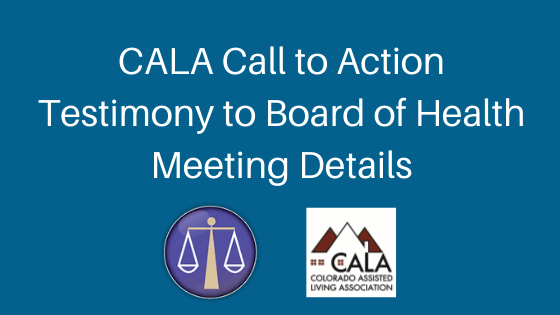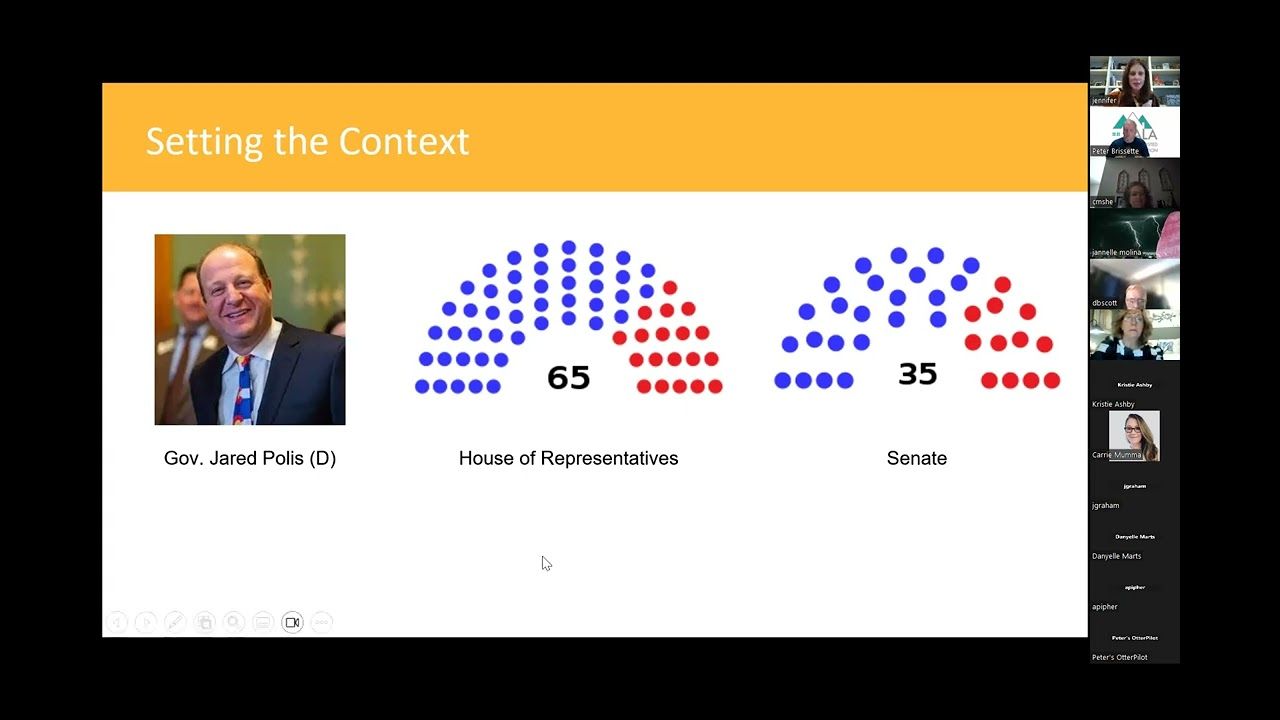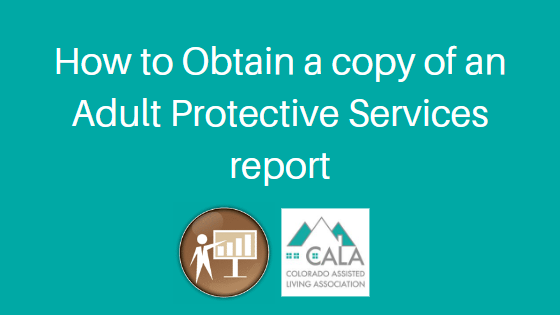CALA Call to Action Board of Health Meeting Details

Colorado Board of Health Meeting Details
Wednesday, December 16, 2020 10 AM
Via Zoom: https://us02web.zoom.us/meeting/register/tZIvd–vrzspG9ETvC5-kPBh3ZyHQdARQTvo
Email: cdphe.bohrequests@state.co.us
Opening Comments 10:00
● Roll call and approval of the minutes
Rulemaking Hearing: Board Action Required
Oral testimony is permitted but it will be limited to the scope of the rulemaking hearing. Written testimony is encouraged; oral testimony will be received only to the extent the Board finds it necessary. For those that are permitted to provide oral testimony, the time may be limited to 3 minutes or less.
Document 1
6 CCR 1011-1 Chapter 7, Assisted Living Residences, presented by Randy Kuykendall and Elaine McManis, Health Facilities and Emergency Medical Services Division.
Document 2
6 CCR 1011-1 Chapter 2, General Licensure Standards, presented by Randy Kuykendall and Elaine McManis, Health Facilities and Emergency Medical Services Division.
Letter From CALA President:
As President of CALA (Colorado Assisted Living Association) I would like to request a six-month delay in the implementation of the revised Chapter 7 regulations for Assisted Living facilities.
We as an industry we had hoped to present concrete data as to the financial burden of the revised regulations for small group homes, but with the outbreak of Covid -19, owners and operators of small group homes have been faced with challenges of managing a pandemic like never before, while caring for Colorado’s most vulnerable citizens.
I own and operate 5 Medicaid small group homes and due to COVID the implementation of the purposed Chapter 7 regulations came to a screeching halt almost 9 months ago so that my focus could be on the safety of my staff and clients, training, testing, acquiring PPE and supplies to name a few due to COVID. Many of the CALA members have communicated the same struggle.
Currently in Colorado there are more than 650 licensed assisted living facilities with over 21,500 beds of those beds almost 7000 are Medicaid or Innovage / Pace program. A majority of these subsidized beds are provided by small group homes and without these beds many of those we serve would be in costly nursing homes or homeless. The increase cost of implementing and operating under the proposed Chapter 7 regulations paired with the most recent 1% cut in Medicaid reimbursement has many providers fearful as to if they can continue to operate.
The proposed regulations of Chapter 7 put a substantial burden on small group homes in many areas. Below in a brief outline of increase fees and operating expenses that put group homes at risk to continue to operate that we have had time to gather-
- Administrator requirements will raise the payroll cost of paying an administrator at least $15,000 to $20,000 per year
- Food Safety training will increase staff training by at least $300 per employee with an industry faced with 30% to 40% turnover per year
- Life enrichment may add a ½ time employee which is $18,000 per year for a part time employee
- Awake staff for secure dementia homes will be an added cost of at least $45,000 per year.
- Staff training is very stringent with out regard to the residents they care for and costs are difficult to estimate.
- ICRA and Medical Waste disposal an additional $2,000 a year
These extra costs do not include the increase in licensing fees, the increase costs of PPE, testing and training for staff with the Covid-19 pandemic.
In closing, I’m proud of my fellow CALA members and industry as a whole for doing all they can to protect those living in small group homes. I’m fearful the implementation of these purposed Chapter 7 regulations at this time would cause not only a financial burden but a mental stressor on administrators and staff that are over worked due to COVID-19. I appreciate your consideration in delaying the implementation of these purposed Chapter 7 regulations of another 6 months so that our industry can have time to continue to prepare.
With Gratitude,
Nicole Schiavone RN
CALA PRESIDENT






